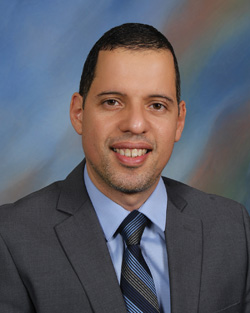
Imagine for a moment getting this phone call from your local Emergency Room: “This is the ER calling for Mrs. Doe. Your husband was brought into our emergency room and we need you to come in, right away.”
No one ever wants to receive this phone call. Getting prompt treatment for a heart attack is imperative. Knowing impending signs of heart trouble can save your life, and the lives of those you love. Reading this article could save a life, maybe even your own!
Did you know that heart disease is the number one killer in the world? Over 366,000 Americans die each year from coronary artery disease. (Source: American Heart Association).
Prevention is possible and seeking a medical expert in preventative or interventional care should be a top health priority, especially if you have any known risk factors.
Often, people wonder, “When should I call the doctor?” While not all chest pain indicates a heart attack, there are some questions to consider when deciding if an immediate call to your doctor is needed.
WHAT DOES THE PAIN FEEL LIKE?
IF THE ANSWER IS:
Chest pain that is sharp or aching in nature and worsens with movement could be musculoskeletal, especially if pain onset occurs after exertion (like picking up heavy box or moving furniture). Musculoskeletal pain is typically not associated with any other symptoms.
CONSIDER THIS ACTION:
Report the condition to your doctor.
IF THE ANSWER IS:
Chest pain that is aching and burning in nature that occurs primarily 30mins-2 hours after eating could be indigestion (heartburn). Indigestion primarily occurs after eating spicy, salty or high fatty foods and is typically relieved with antacids.
CONSIDER THIS ACTION:
Report the condition to your doctor.
Some symptoms of a heart attack can mimic indigestion, so if you are concerned then you should call your physician.
IF THE ANSWER IS:
Chest pain that is a tight sensation, possibly radiating to your jaw or down to your fingertips could be a condition called angina. Angina is typically brought on by exertion, only lasts for a few minutes at a time, and is relieved with rest.
CONSIDER THIS ACTION:
Angina is a symptom of heart disease and should be promptly evaluated by a cardiologist.
IF THE ANSWER IS:
Moderate or intense chest pain or pressure associated with shortness of breath, pain that radiates to jaw or either arm, weakness, or a you break into a cold sweat, then you.
It is important to note that not all people experience intense chest pressure when experiencing a heart attack. Atypical symptoms of a heart attack include: shortness of breath, upper abdominal pain, dizziness, or extreme fatigue.
CONSIDER THIS ACTION:
Go to the ER immediately! Seeking timely treatment for a heart attack is directly related to improved outcomes.
 Dr. Ben
Dr. Ben
When choosing your cardiologist, you will want to research the doctor’s qualifications. Clear Lake Cardiology is proud to provide a brief review of Dr. Fethi Benraouane’s (Dr.Ben) extensive professional and clinical expertise.
Throughout his training and medical career Dr. Ben has obtained 9 board certifications including cardiovascular disease, interventional cardiology, endovascular/vascular medicine, echocardiography and nuclear cardiology. His advanced fellowship experiences include rotations in pulmonary care in France; internal medicine at St. Agnes Hospital in Baltimore, MD; cardiovascular disease at the Medical College of Georgia in Augusta, GA; interventional cardiology at the Thomas Jefferson University Hospital in Philadelphia, PA; culminating in an advanced structural heart and endovascular fellowship at the Prairie Vascular Fellowship in Springfield, IL.
Dr. Ben is highly accomplished in performing minimally invasive procedures including carotid and peripheral stent placement, transcatheter aortic valve replacement (TAVR), and PFO closure. Dr. Ben also specializes in coronary artery disease as has extensive experience in performing coronary artery intervention, left heart catheterization and stent placement. Dr. Ben is skilled and accomplished in providing minimally invasive treatment of varicose veins in office.
Clear Lake Cardiology is committed to serving the community by providing superior-patient centered care through innovative and specialized diagnostic testing and treatment. With Dr. Ben’s clinical expertise and experience, you will be treated by a highly educated and qualified cardiologist who is dedicated to your care. Call and make an appointment today!
600 N. Kobayashi Rd., Suite 311, Webster, TX 77598
281-724-4711 | www.clearlake-specialties.com/cardiology
 Dr. Ben
Dr. Ben

